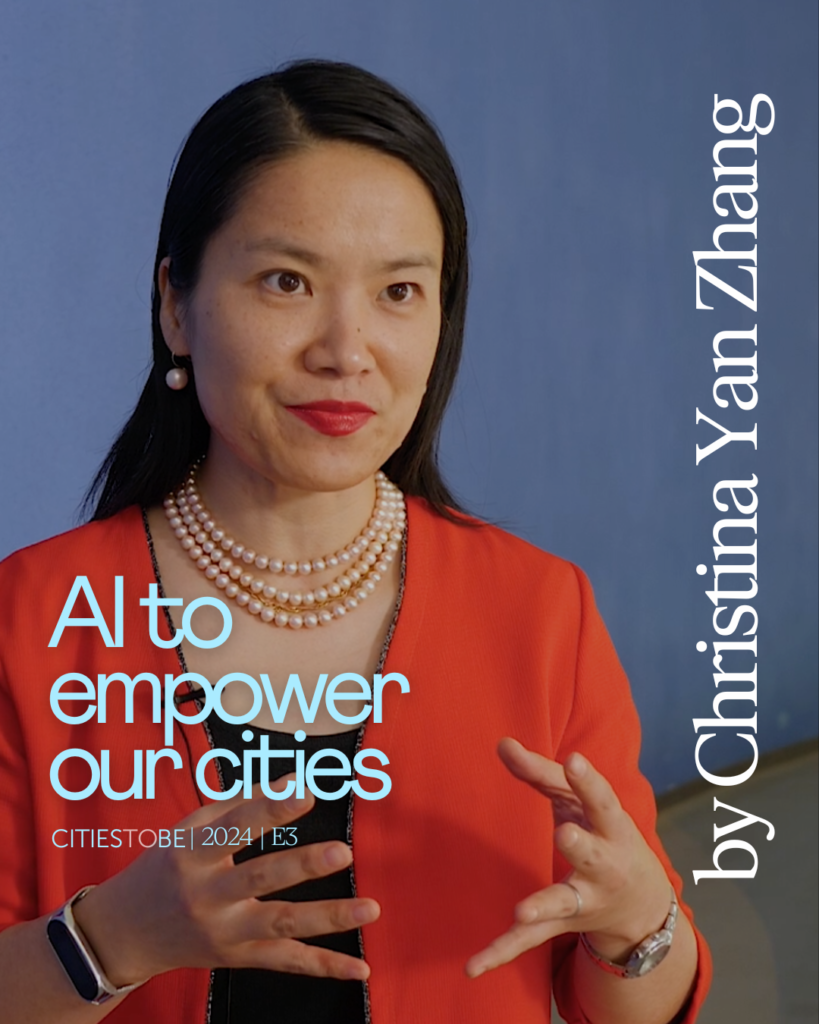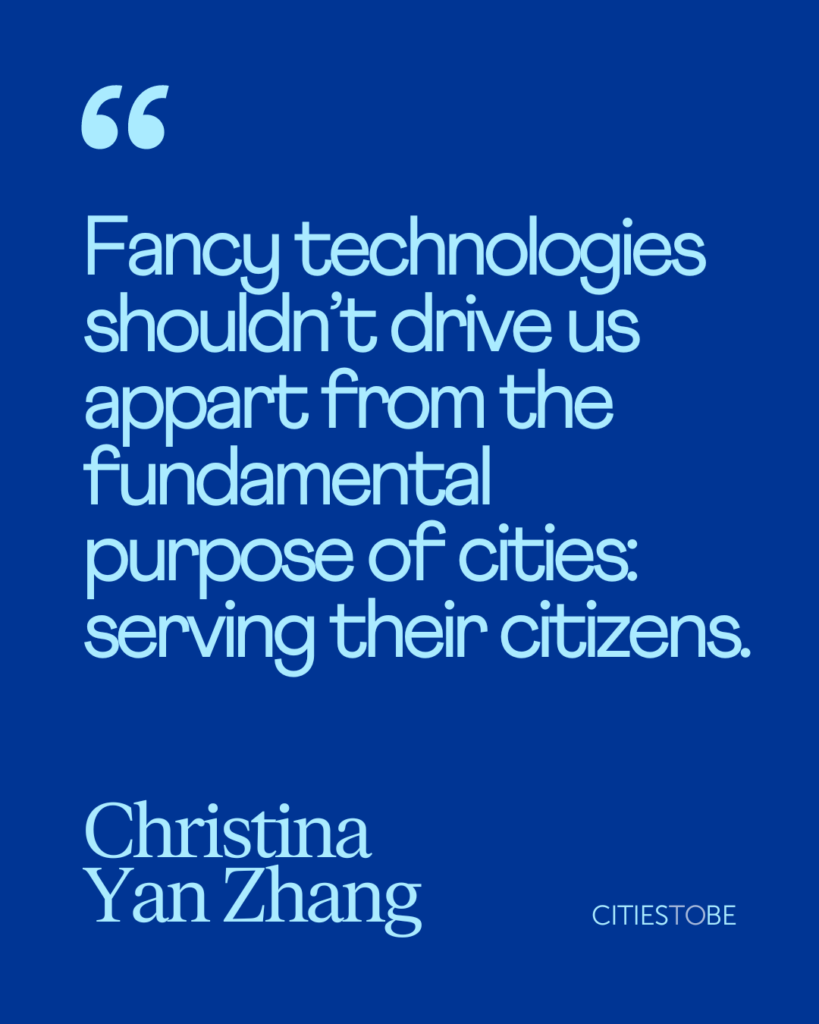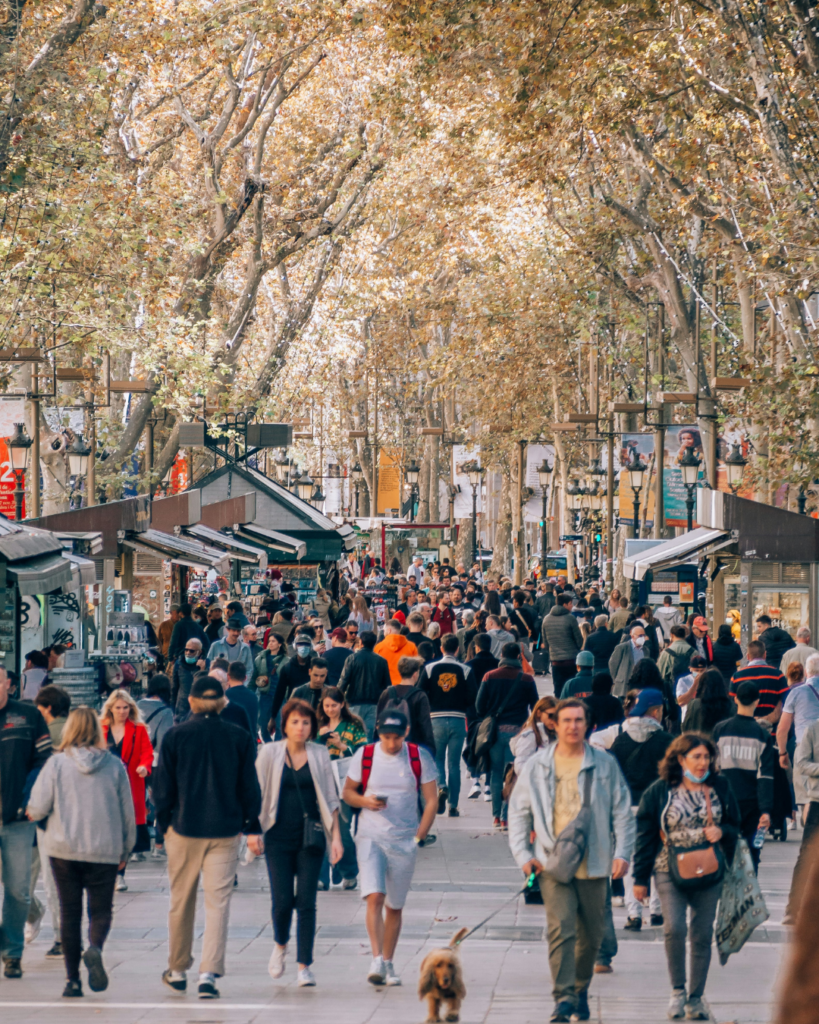
Applying the latest and more fancy technologies to cities sounds tempting. But sometimes, they can drive us apart from the fundamental purpose of cities: serving their citizens and giving them an enjoyable environment in which they can explore all their potential.
What risks arise from AI growing application in urban realities? How can we make AI a trusted asset for the future? In a new episode of our series of conversations on the trends defining today’s urban world, we discuss AI to empower our cities with Dr. Christina Yan Zhang, CEO of The Metaverse Institute & Co-chairperson of the International Telecommunication Union’s Task Group on Pre-standardization for the CitiVerse.
#ExpertVoices | 2024 x E03
AI to empower our cities
— by Christina Yan Zhang —
What role should emerging tech play in urban development?
As we increasingly realize, building the future Smart City shouldn’t be about the fancy technology we have at any given moment. Instead, we should focus on the very fundamentals of cities: how we can better serve our citizens, meet their fundamental needs, and make cities happier, more enjoyable, and inclusive. By harnessing the power of emerging technologies—whether it’s artificial intelligence, digital twins, or the metaverse (which was very popular last year)—we can achieve these goals. Now, there seems to be more emphasis on digital twins and content technologies.

How we can optimize Digital Twins for futureproof our cities?
For any kind of digital twin, visualization, or building information modeling (BIM)—the name doesn’t matter because digital twins have been around since the 1960s—what really needs to be addressed is functionality. How can we allow people to identify the most effective use cases for digital twins, not just by governments? If we want to simulate the whole city of Barcelona to improve future urban planning from a citizen-centered perspective, we need to see how each of us can use that tool. For example, if we consume more responsibly, ensure we never waste food, and recycle more, we can examine the long-term climate impact on Barcelona. Could these actions delay global warming in the city by 0.5 degrees Celsius over the next five years? If we can all contribute, I think that can be very powerful.

What risks arise from AI growing application in urban realities?
The energy consumption of training AI is actually quite significant. Research conducted by the University of Massachusetts found that training large language models produces five times the carbon emissions of an American car and more than 200 round trips between New York and San Francisco. This kind of conversation is not really taking place. Everyone is talking about concerns over AI automating jobs and ensuring AI doesn’t become smarter than humans. These conversations are important, but considering the increasing global temperatures, we should also focus on addressing the issue of AI and sustainability. AI can help mitigate climate change, but it also consumes a lot of computing power, with data centers emitting large amounts of heat. So, how can we find a balance? Like with any technology, we need to balance maximizing its potential for all human beings and minimizing risks to ensure a sustainable, inclusive, and participatory city for everyone.

How can we make AI a trusted asset for the future?
«I envision cities that offer excellent training and educational opportunities for our younger generation, ensuring they are prepared for a future where automation won’t lead to mass unemployment. Instead, we should teach them to coexist with robots and utilize AI to pursue noble purposes, rather than struggle with daily challenges that hinder their ability to appreciate life’s beauty. Aligned with Maslow’s hierarchy of needs, this vision empowers individuals to contribute more meaningfully to society. That is my dream.
Interview and edition by Sergio García i Rodríguez,
Head of Communication at Anteverti & CitiesToBe Executive Editor, Martina Jané i Curtu, Comms specialist at Anteverti, and Marta Bugés.
Video by Eloy Calvo and Cristóbal Sarría Chitty
CitiesToBe is a knowledge platform for city lovers, experts and urbanites to discuss the present and the future of cities.
A common space to think about today’s urban challenges, and share innovative ideas and experiences that help make cities better for people.
CitiesToBe is a platform powered by Anteverti, curator of Smart City Expo World Congress where 25,000 leaders from 140+ countries, 850 cities are getting together in Barcelona every year to discuss everything and anything about urban futures.)
The original article is published here AI to empower our cities — by Christina Yan Zhang | CitiesToBe

